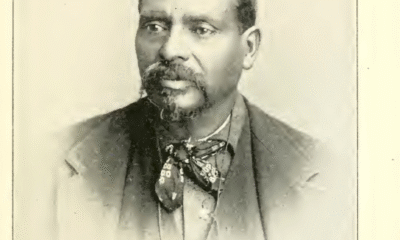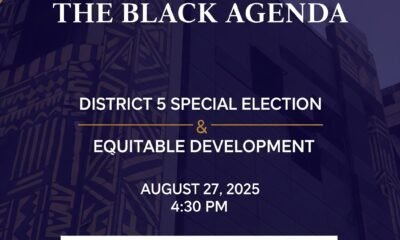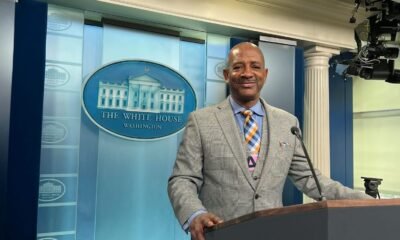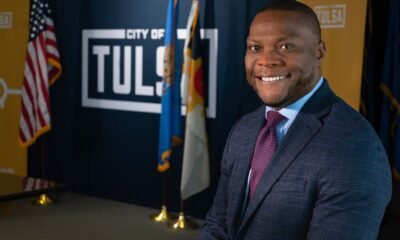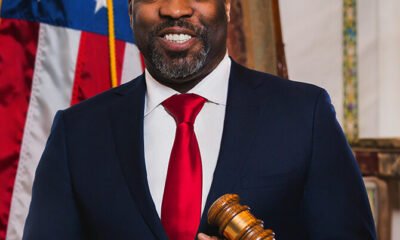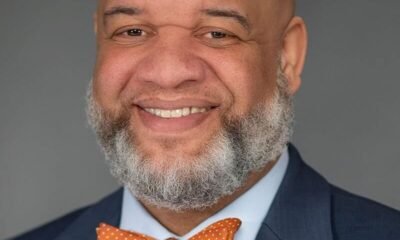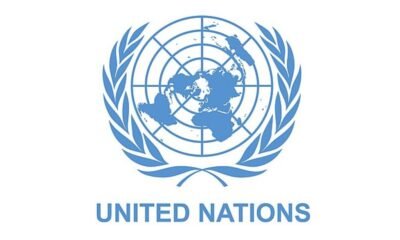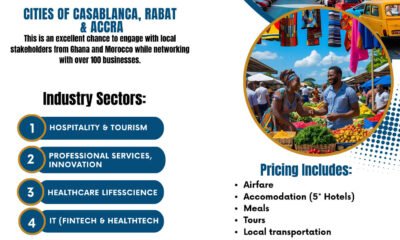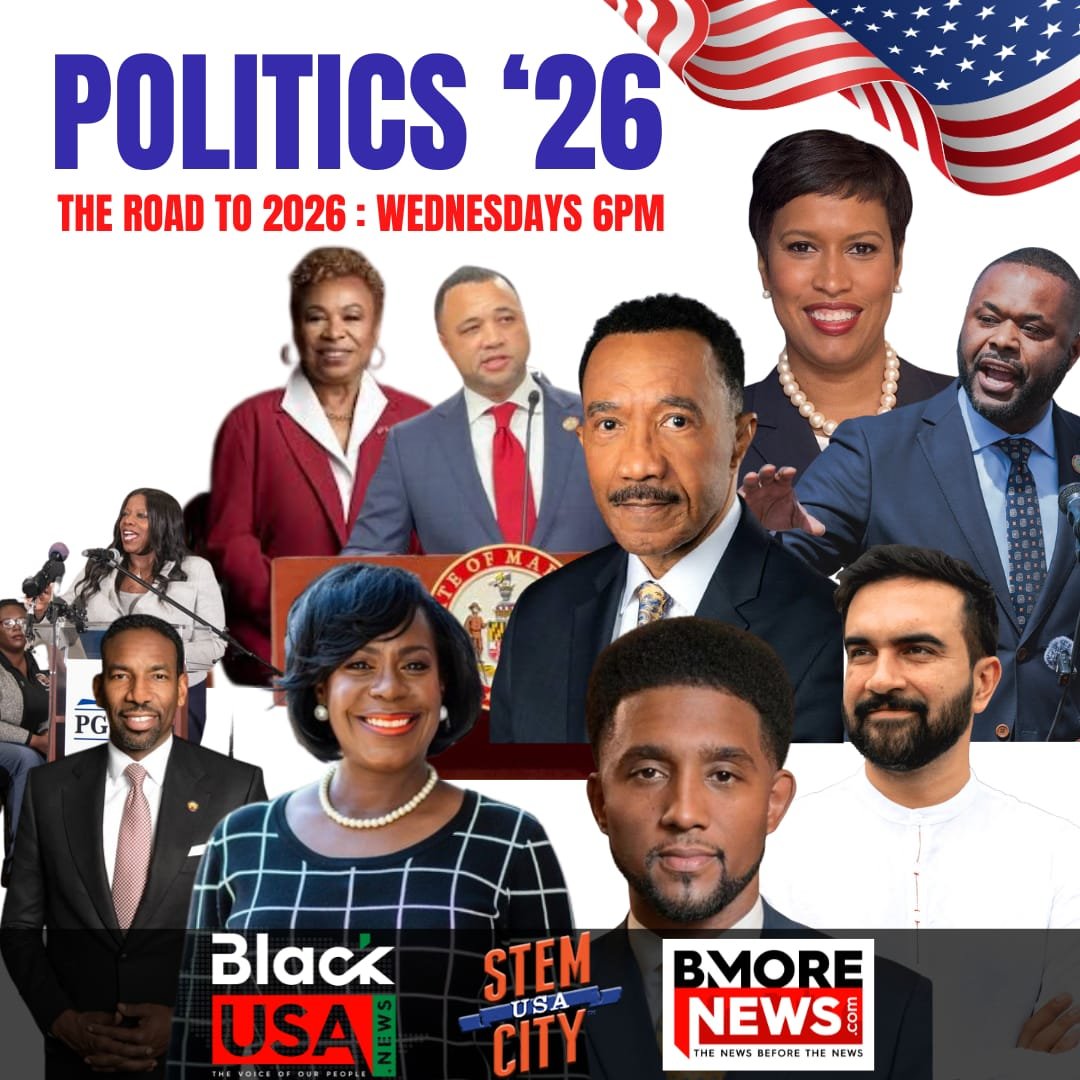Editorial/OP-ED
Opinion | The U.S. Relationship With China Does Not Need to Be So Tense
Published
3 years agoon
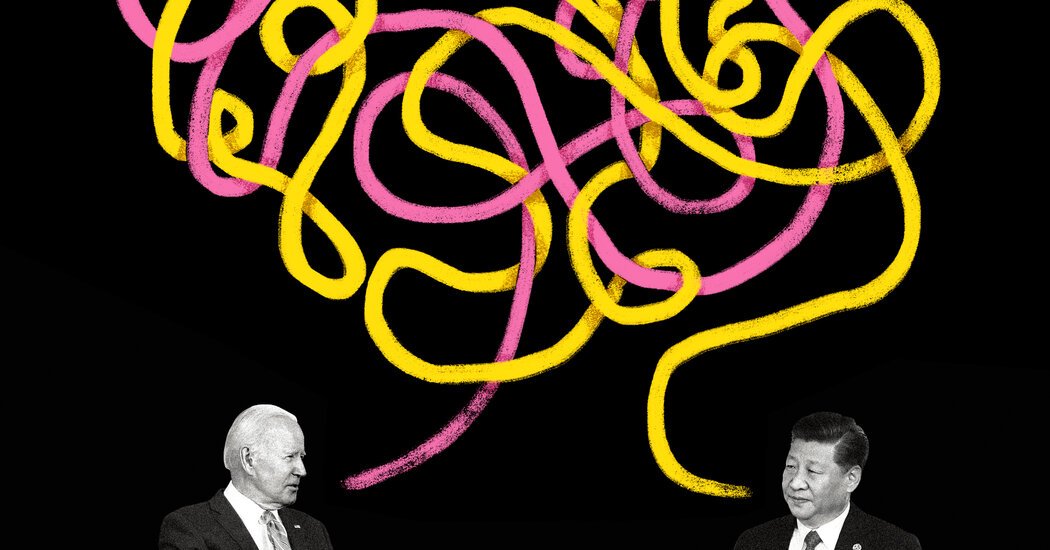
China, economically ascendant, has become increasingly assertive in pressing its economic, political and territorial claims. The United States, which long treated the country as something of a charity case, now regards it as a rival and, increasingly, as a threat. While some tension is inevitable, the rhetoric in both nations has taken a bellicose turn. There is little trust or cooperation even on issues of clear mutual interest, like combating the Covid-19 pandemic or addressing climate change.
The hardening on both sides was on full display this week. House Speaker Nancy Pelosi made a provocative visit to Taiwan to underscore America’s support for its democratic government, and China mounted an overheated response, staging military exercises that encroached on Taiwan’s airspace and territorial waters to emphasize its determination to establish sovereignty over what it regards as its own. China announced on Friday that it also would suspend communication with the United States on a number of issues, including climate change and efforts to prevent drug trafficking.
It is in everyone’s interest for the two most powerful nations on Earth to find ways of easing these tensions. Over the past half century, beginning with President Richard Nixon’s seminal visit to China in 1972, the leaders of the United States and China have repeatedly chosen to prioritize common interests above conflict. Building this relationship, for all its flaws, has contributed much to the world’s stability and prosperity.
The Biden administration has ditched the xenophobic rhetoric of the Trump White House, but it has not offered its own vision for striking a balance between competition and cooperation. Instead, it has conducted America’s relationship with China largely as a series of exercises in crisis management, imposing sanctions for China’s human rights abuses in Xinjiang and Hong Kong while seeking its cooperation on Covid, climate change and the war in Ukraine.
There are several concrete steps the United States could take that might help improve relations.
First, instead of relying on punitive trade policies rooted in fear of China as an economic rival, the United States needs to focus on competing by investing in technical education, scientific research and industrial development. It is past time for President Biden to make a clean break with the Trump administration’s failed gambit of bullying China into making economic concessions by imposing tariffs on Chinese imports.
On Tuesday, Mr. Biden is expected to sign the CHIPS Act, which includes nearly $53 billion to support domestic production of semiconductors, the building blocks of the digital age. This might be described as taking a page from China, except the United States was the first great practitioner of this kind of industrial policy.
The United States also needs to move past the old idea that economic engagement would gradually transform Chinese politics and society. Instead of trying to change China, the United States should focus on building stronger ties with China’s neighbors. Fostering cooperation among nations with disparate interests — and in some cases, their own long histories of conflict — is not an easy task, but recent history teaches that the United States is more effective in advancing and defending its interests when it does not act unilaterally.
Taiwan is an important part of that project. Ms. Pelosi’s visit was ill timed. The Biden administration’s most urgent foreign policy priority is helping Ukraine to defeat Russia’s invasion, and the Taiwan contretemps makes it only harder to persuade China to limit support for Russia. The substance of Ms. Pelosi’s message to Taiwan, however, was on the mark. The United States has long supported the maturation of Taiwan’s democracy, and it is in America’s interest to treat Taiwan as a valued ally.
The United States has long maintained a policy of “strategic ambiguity” with regard to Taiwan, selling arms to its government while declining to make any outright security commitments. Arming Taiwan remains the best way to help. But clarity could help, too.
Tensions over Taiwan are rising for three interlinked reasons: The self-governing island has become more democratic and defiantly autonomous; China, under the authoritarian leadership of Xi Jinping, has become more bellicose; and the United States has responded to both trends by offering Taiwan stronger expressions of support.
When Mr. Biden said bluntly in May that the United States would defend Taiwan against a Chinese attack, aides insisted he didn’t mean to shift American policy.
But the White House should be clear that America’s commitment to recognize only a single Chinese state — the “one China policy” — has always been premised on the mainland’s peaceful conduct toward Taiwan.
Neither of these efforts — strengthening the American economy and building stronger alliances — is meant to isolate China. To the contrary, they offer a stronger basis for the Biden administration and its successors to engage China on issues where there are real differences but also real possibilities for progress, especially climate change.
Treating China as a hostile power is a counterproductive simplification. The two nations occupy large chunks of the same planet. They do not agree on the meaning of democracy or human rights, but they do share some values, most important the pursuit of prosperity.
The uncomfortable reality is that the United States and China need each other. There is no better illustration than the cargo ships that continued moving between Guangzhou and Long Beach, Calif., during Ms. Pelosi’s visit — and will continue long after her return.
Read the full article here
A journalist since 1994, he also founded DMGlobal Marketing & Public Relations. Glover has an extensive list of clients including corporations, non-profits, government agencies, politics, business owners, PR firms, and attorneys.

Editorial/OP-ED
Black Women Were Always at the Table — Stop Writing Them Out
Published
5 months agoon
August 8, 2025
(BALTIMORE – August 8, 2025) – The Center for American Women and Politics (CAWP) recently dropped a timeline highlighting major milestones in U.S. women’s political history — from Seneca Falls to Kamala Harris. It’s long, detailed, and well-produced.
But let’s keep it real: it’s incomplete.
And this is personal for me — not because I’m a woman.
I’m a man. A Black man.
And as a journalist, publisher, and student of history, I have a responsibility to call it like I see it.
What I see is a whole lot of celebration for white women’s progress — and not nearly enough credit given to the Black women who’ve been leading, building, organizing, and risking it all from day one.
Where’s Sojourner Truth, who stood up in 1851 and demanded the world answer: “Ain’t I a Woman?”
Where’s Frances Ellen Watkins Harper, a Baltimore legend who confronted white women suffragists with truth and grace?
Where’s Ida B. Wells, who stared racism in the face and built her own organizations when others tried to silence her?
And how do you miss Frances Ellen Watkins Harper — a Baltimore-born powerhouse who was one of the first Black women to publish a book in the U.S. and who addressed the 1866 National Women’s Rights Convention with a message that still resonates? Raised and educated in Baltimore at her uncle’s Watkins Academy for Negro Youth, Harper’s early years in this city shaped the moral clarity and courage that defined her national work. She’s not a side note. She’s a cornerstone.
You mean to tell me there’s a 48-year gap between the 19th Amendment and the first meaningful mention of a Black woman in elected office? That’s not an oversight. That’s historical malpractice.
Black women have always been in the fight.
They didn’t wait to be invited. They didn’t ask for permission. They created their own lanes — from the Black women’s clubs of the 19th century to the organizing of the Civil Rights Movement to the halls of Congress today.
And while others were patting themselves on the back, Black women were doing the work.
I’m not speaking for them — I’m standing beside them.
And I’ll use every mic I’m handed to make sure their names, their labor, and their leadership are never erased. Because Black women didn’t just join the movement.
They moved the movement. And BlackUSA.News will always make sure the world knows it. 
📍 Watch LIVE on LinkedIn, YouTube, and Facebook
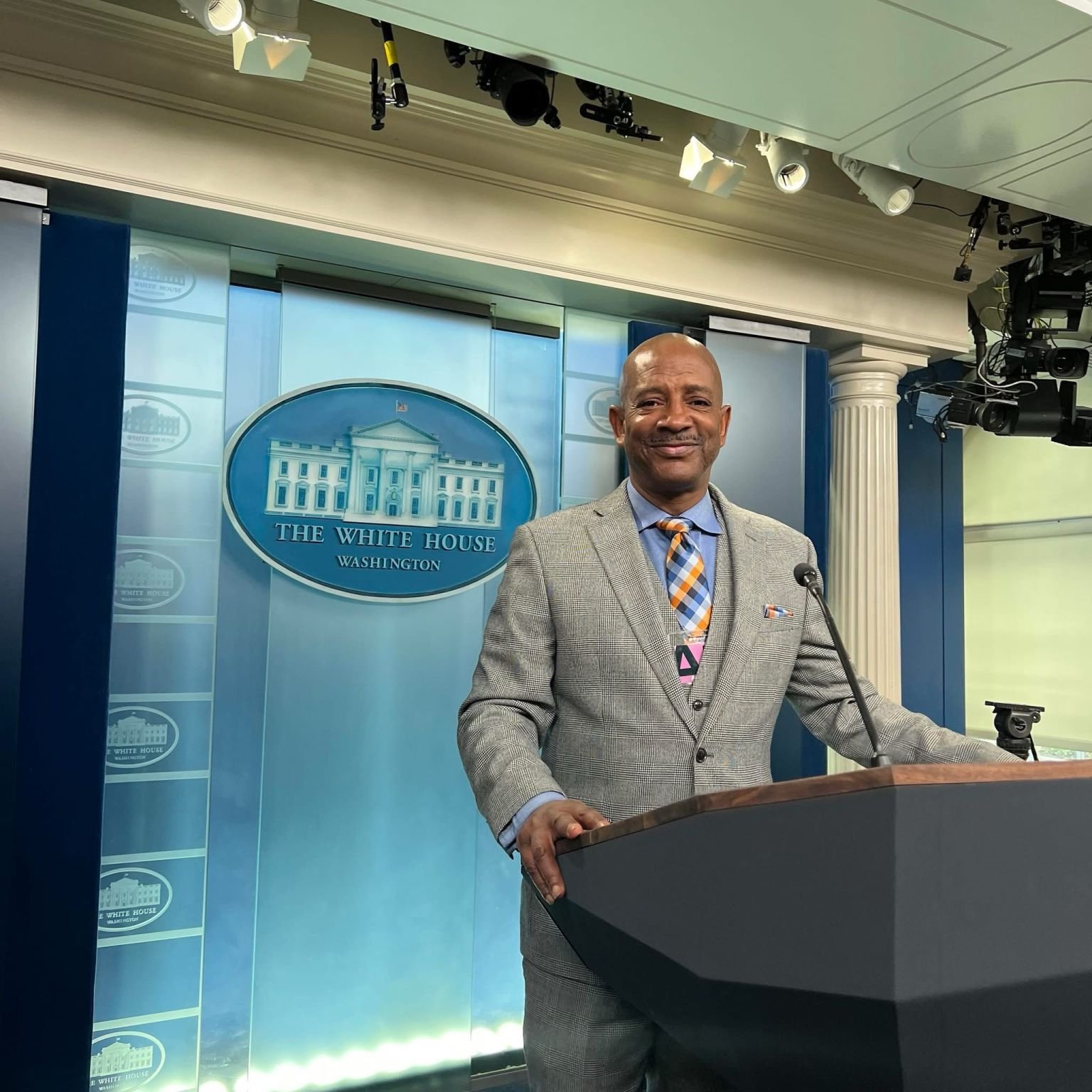
(BALTIMORE – August 2, 2025) – Greetings. 你好. Namaste. Hola. Bonjour. Salaam alaikum. Nomoshkar. Olá. Shalom. Здравствуйте.
I come to you humbly and respectfully to say this: most of the people I know and live among are nothing like President Donald Trump.
From where I stand, I imagine much of the world watches in disbelief as this man — and those aligned with him — continue to dismantle civil rights protections, gut healthcare programs like Medicaid, and insult global allies without remorse. It’s disheartening, shameful, and dangerous.
And yet, here we are.
Even after years of evidence — his public misogyny, the racism, the cruelty, the lies — millions still voted for him. Only now, with democracy in crisis and global trust fractured, are some Americans having what we call a “come-to-Jesus moment.”
That’s what we call cognitive dissonance: when someone knows the truth but refuses to fully accept its consequences.
Around the world, cultures may differ, but many share a basic value: respect. It costs nothing — but means everything.
I felt that truth in my bones when I watched Vice President J.D. Vance berate Ukrainian President Volodymyr Zelenskyy in front of the global press. I was sickened. The disrespect was not only unnecessary — it was classless.
I wasn’t raised like that. And neither were many of the good people I know across this country.
To be honest, I think the group most manipulated in all this were white women voters. They knew who Trump was. The video clips, the criminal allegations, the “grab ‘em” tape — it was all out there. But still, many chose him over Kamala Harris, a competent and qualified leader.
Was it the trauma of having had a Black president for eight years that made the idea of a Black woman too much to bear? Maybe. But it’s worth asking.
America has never truly reconciled with its original sin: slavery and the structural racism that followed. And now we have a president who canceled MLK Day, who mocked a teenage climate activist on the world stage, and whose wife often appears unwilling to even fake a smile beside him.
Let us not forget: this is the man who incited a violent insurrection on January 6th, 2021.
Dear world, please know this: America is better than what you’re seeing right now.
As my mother always said, “Nobody is better than you, and you are no better than anyone else.” That’s the kind of America I believe in — not one built on ego and profit, but on humility and shared dignity.
Still, we live in a society where your bank account defines your worth, where kindness is seasonal, and where too often, decency gets buried under division.
But where I come from — Baltimore — we still learn respect. At home, in the streets, in school. You give it, you get it. You don’t give it, you learn the hard way.
That’s the American spirit I stand for. That’s the America I want the world to know.
So no, we are not all like Trump. And many of us are doing everything we can to keep our country from falling deeper into that abyss.
Wishing you peace in the midst of this storm.
‘Til next time,
Doni Glover
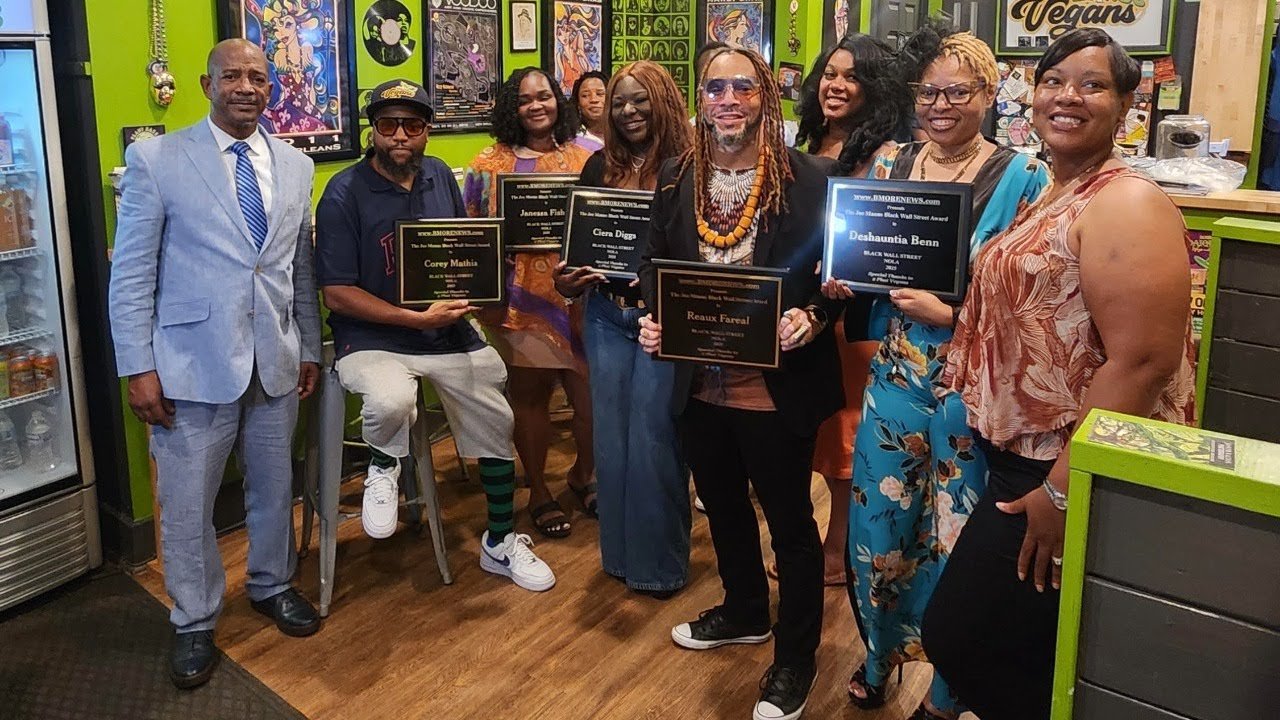
(BALTIMORE – August 2, 2025) – In December 2020, right in the thick of COVID, everything was turned upside down. Interviewing people became nearly impossible — folks weren’t coming outside, Fauci was in everyone’s ear, and Trump was out here talking about drinking bleach. It was chaos.
But through the madness, we found a way forward. We embraced streaming.
Special thanks to Peggy Morris of Sisters4Sisters Network. She introduced me to StreamYard.com, and the rest is history. That connection helped birth BlackUSA.News — the national arm of BMORENews.com. It wasn’t the first time Peggy and her network showed up for us, and it likely won’t be the last.
From there, the movement grew.
On the West Coast, De’Von Walker and Troy Rawlings have been pillars. Troy — a Baltimore native — brings heat from Los Angeles, while De’Von’s Black Wall Street Board Game reminds us of Monopoly with a mission: to uplift Black-owned businesses.
In Oakland, Doug Blacksher has been a home-run-hitting host. His show consistently breaks reach records, diving deep into politics and business — his two favorite lanes.
Up in New York, our go-to is Tasemere Gathers of The DM Firm. She’s solid, dependable, and visionary. And we’d be remiss not to shout out Walter Edwards, Regina Smith, and Vito Jones in Harlem, as well as Makonen of the Harlem Business Alliance — each of them pushing the needle forward.
In Atlanta, Robert Scott and Bou Kahn have not only supported the news but have helped us successfully host the Joe Manns Black Wall Street Awards over the years.
And then there’s Lee Vaughan, our National President. Thanks to Lee, we’ve expanded from 6 to 9 cities — adding Mobile, Las Vegas, and Tulsa to the fold. One of his honorees? None other than D.L. Hughley.
Let me not forget Dr. Eric Kelly, a brilliant connector introduced to us by the illustrious Marsha Jews, our resident anchor and a national treasure.
We stream live on LinkedIn, Facebook, and YouTube.
This is our rebirth.
This is BlackUSA.News.
Check us out — and spread the word.

Remember Who You Are: The Indigenous Series 📱

Remember Who You Are: The Indigenous Series

Indigenous Series: Reclaiming Our Legacy 📱

Indigenous Series: Reclaiming Our Legacy

Indigenous Series: Save Our Legacy

Remember Who You Are: The Indigenous Series

Remember Who You Are: The Indigenous Series 📱

Indigenous Series: Reclaiming Our Legacy

Indigenous Series: Reclaiming Our Legacy 📱

Indigenous Series: Save Our Legacy 📱
Newsletter
Subscribe to our newsletter to get the latest news directly to your inbox.
